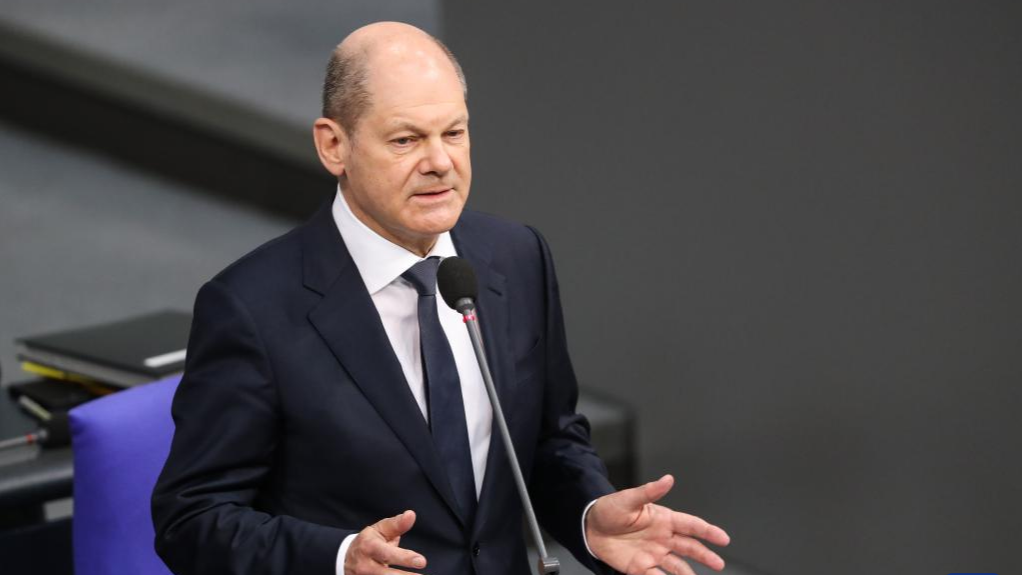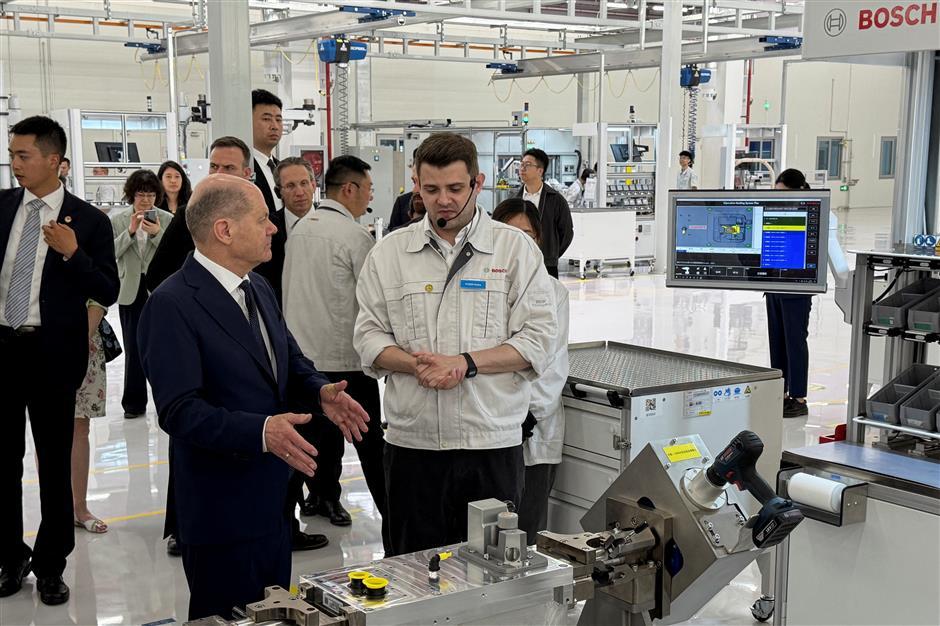
German Chancellor Olaf Scholz. [Photo/Xinhua]
By Karl-Heinz Pohl
German Chancellor Olaf Scholz is in China this week for his second official visit. Interestingly, some Western media outlets are outdoing themselves with negative remarks about Scholz's visit.
These reports reflect the current biased image of China in Germany, which, it must be said, is more negative than it has been in decades. Although there are talks of the triad as a "partner, competitor and system rival," it is primarily the latter - rivalry - that is at the center of these commentaries.
The background to this is the global political context. Geopolitical tensions including the Russia-Ukraine conflict have driven some Germans into a mindset, not to say into a mindset trap: We are dependent on others, and since political conditions can change, we urgently need to reduce our dependencies on non-allied business partners - such as China. In other words, we need to "de-risk."
But not everyone sees it this way. Scholz is accompanied by quite a few well-known representatives of the German economy, including senior representatives of Siemens, BMW, Zeiss, Bayer and Mercedes-Benz. These business tycoons see their China trip as an opportunity for closer economic cooperation. Despite "de-risk" calls, Scholz and the majority of the business community remain committed to deepening cooperation with China.

German Chancellor Olaf Scholz visits a Bosch factory for hydrogen drives in Chongqing, China, April 14, 2024. [Photo/Xinhua]
But what has gone wrong with the image of China in Germany? First and foremost, some politicians have brought about a "moralization" of foreign policy, which means foreign policy is supposedly value-orientated. This type of policy is strongly supported by the Americans, who talk about values but mean interests.
One consequence of the "moralization" of foreign policy is that there is hardly any room left for diplomacy. These politicians feel they have the moral "high ground" and are, therefore, authorized to speak their mind against non-allied countries. The "moralization" of politics prevents the basis of any intercultural understanding, namely the willingness to change one's perspective and the ability to see the world from another point of view.
For some German politicians, knowledge of China is almost negligible. Neither at school nor in the media does the average German learn anything substantial about China. There is a lack of knowledge of Chinese history, cultural tradition and political culture. Although there is a so-called "think tank" for China, it is known for its politically negative bias towards the country.
In view of China's rapid rise and incredible technological progress, some Westerners have become increasingly anxious. Kerry Brown, a professor of Chinese Studies and Director of the Lau China Institute at King's College in London, explained the development of the image of China over the last three decades as follows: "Then China remained relatively backward and marginal. Now it is the world's second biggest economy and a far greater geopolitical actor. It stands poised to become the world's largest economy in gross terms some time in the next decade."
This, according to Brown, is the "last outcome to the 'end of history' narrative that people thought possible in the 1990s when the USSR collapsed and there was a sense that Communism's days were over." The "inconvenient" fact that China remains a place that resolutely sticks to its political system and that that system seems to deliver outcomes competitive with capitalist systems in terms of delivering growth is driving some of the resentment towards China. For politicians insisting on the "moralization" of foreign policy, China on the verge of perpetual collapse was always something they were comfortable with.
Now Scholz is paying an official visit to China, and travelling often leads to learning something: one understands the reality of the other in a tangible way. Perhaps German representatives to China will be able to see the situation in the country through a change of perspective differently from what is depicted by some German media. For example, allegedly "increasingly aggressive behavior" that is constantly being attributed to China in the German media is nothing compared to the actual aggression of its geopolitical counterpart, namely the U.S., with a historic record of invading other countries.
Scholz's visit to China will therefore offer the opportunity to help initiate a policy of peaceful coexistence, co-operative security and friendly global exchange for mutual benefit, instead of reviving aspects of the Cold War. It would simply be a matter of focusing – through the use of diplomacy – on cooperation instead of confrontation, and partnership instead of rivalry.
Karl-Heinz Pohl, a special commentator on current affairs for CGTN, is a professor of Chinese Studies at Trier University in Germany, and the director of the Confucius Institute Trier.

 中文
中文



